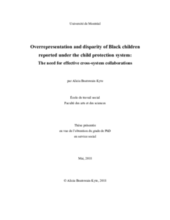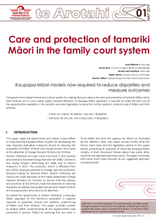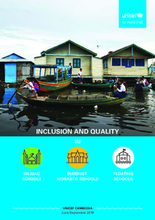Displaying 191 - 200 of 505
Drawing on the extant literature, this chapter will present a multileveled discussion of the experiences of prejudice and bias foster youth face, with a focus on the systemic inequities among diverse youth in foster care, the individual challenges youth with different social identities face, socialization processes that can support these youth, and challenges foster parents face in supporting foster youths’ healthy identity development.
The present study uses the US National Youth in Transition Database (NYTD) to examine educational attainment, employment, homelessness, and incarceration for white, African-American, Hispanic, and American Indian/Alaska Native emancipated youth.
Using a phenomenological approach, this qualitative study explores the contexts of institutional placement of children in Azerbaijan from their caregivers' perspectives.
This three-paper dissertation examines the overrepresentation of Black children reported to child protection services in Canada.
This paper urges the government and nation of New Zealand to give effect to long-standing Kaupapa Māori models for developing the new required evaluation measures aimed at reducing the disparities for Māori children and young persons who come to the attention of Oranga Tamariki Ministry for Children.
This chapter from the book Re-Visioning Public Health Approaches for Protecting Children critiques historical and contemporary child protection approaches that are viewed as replicating the colonialist practices of child removal and destruction of families/parenting and communities. Using Australia and Canada as examples, it focuses upon three different sources of the disadvantage and distress that Indigenous communities typically experience: the impacts of Colonisation; intergenerational trauma; and the ongoing social, economic, legal and political inequalities that stem from deep-seated inequity.
This literature review examines research on the outcomes and experiences of Hispanic families in the US child welfare system and how case characteristics interact with the experiences of Hispanic families.
Drawing on the baseline data, this paper profiles >200 multistressed families (MF) who entered into a specific enhancement programme in Singapore and compares the sociodemographies, family functioning and resilience of the children between transnational and non-transnational families.
Based on the ongoing, rigorous documentation of the author's experience, as a social work practitioner in a community child protection centre, this article presents two single‐case studies that describe and conceptualize the potential contribution of the poverty‐aware paradigm to the creation of a social framework for child protection practice.
This research study was commissioned to generate a better understanding of three school communities in Cambodia: Islamic schools, Buddhist monastic schools, and floating schools with a focus on identifying challenges in delivering quality and inclusive education.



